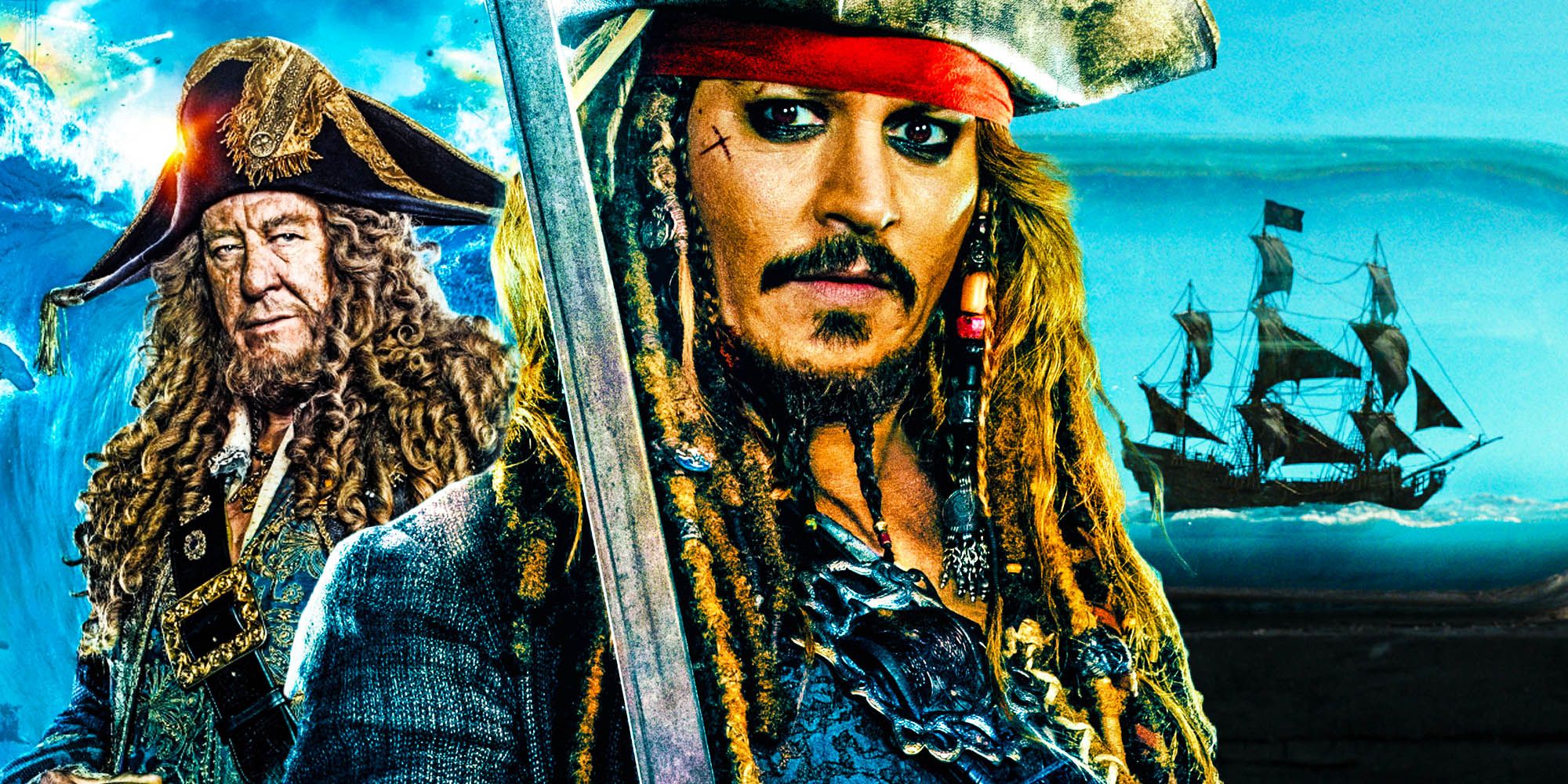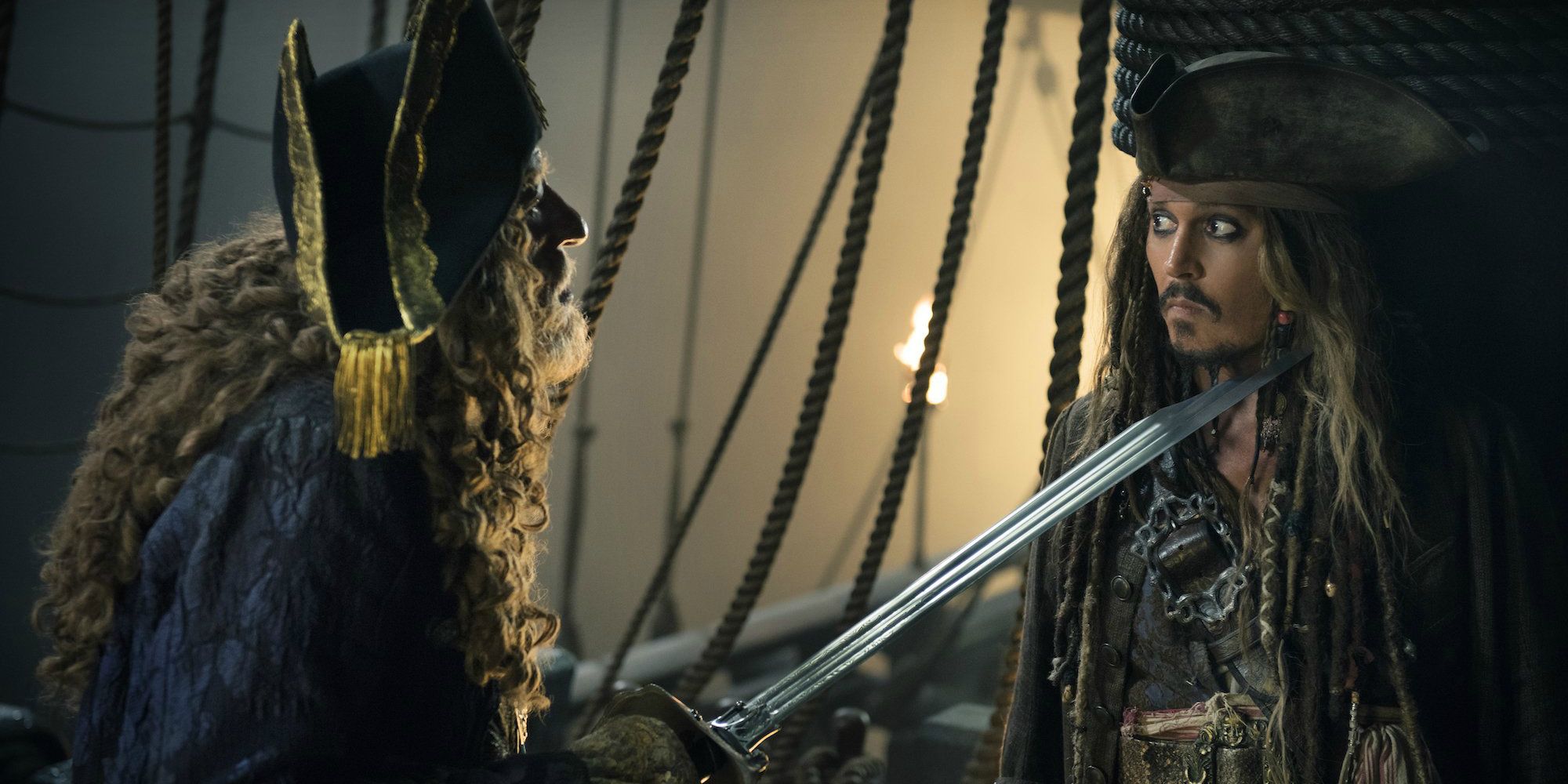There are many problems with Pirates of the Caribbean: Dead Men Tell No Tales, but at least it avoided the original script’s sin of ruining Jack Sparrow (Johnny Depp) and Barbossa’s (Geoffrey Rush) history. The fifth movie was released to dismal reviews and underperformed at the box office compared to previous sequels. The film isn’t nearly as imaginative as the first three installments, yet there is untapped potential for a compelling narrative.
Dead Men Tell No Tales follows Henry Turner (Brenton Thwaites), the son of Will (Orlando Bloom) and Elizabeth (Keira Knightley), as he attempts to free his father from the Flying Dutchman’s curse. Accordingly, Henry allies himself with Jack and astronomer Carina Smyth (Kaya Scodelario) in his quest to locate the Trident of Poseidon. Meanwhile, the group is pursued by Armando Salazar (Javier Bardem) and his ghostly army.
Jack and Barbossa eventually reunite and resume their comical bickering, once again working together to survive a supernatural threat. However, Jeff Nathanson’s original script for Dead Men Tell No Tales tarnishes their history with forced sentimentality. The script’s final scene sees Jack honor Barbossa’s fatal sacrifice by renaming the Black Pearl after his rival, largely ignoring the animosity established in the previous films.
Barbossa’s death remains much the same as in the final film - he drowns whilst helping his daughter, Carina, and Jack escape from Poseidon’s Tomb. However, Dead Men Tell No Tales’ original script ends with Jack and Gibbs aboard the Black Pearl. Jack expresses his desire to rename the Pearl to “strike fear into our enemies.” “Barbossa” is then seen carved into the back of the ship as Jack sails toward the horizon. However, it would be implausible for Jack to make such a grand gesture to commemorate his former enemy. Although they exhibited begrudging admiration for one another, their relationship was always defined by betrayal. Barbossa stole the Black Pearl twice, and Jack spent 10 years waiting for his revenge on his one-time first mate. For Jack to go from killing Barbossa in Pirates of the Caribbean: The Curse of the Black Pearl to bestowing upon him the greatest honor would suggest a grand arc that simply doesn’t develop over the films.
Jack had renamed his beloved ship before, but only because the Wicked Wench was razed and then resurrected with a charred hull. Calling the ship “the Black Pearl” was a symbol of victory for Jack, and it perfectly captures his adoration for the vessel. Jack has always associated the Pearl with freedom, so why would he rename it after Barbossa, the man who ripped it from him? While Barbossa is also attached to the Pearl, he was seemingly prepared to hand it back to Jack in the first film's climax, undermining its significance to him. Jack later blames Barbossa for losing the ship to Blackbeard (Ian McShane), feeling incomplete without the Pearl. Both the original screenplay and final version of Dead Men Tell No Tales see Jack hope to regain his former glory once he is reunited with the Pearl, emphasizing its importance to his character. In the fifth film, he and Barbossa aren't enemies, with Geoffrey Rush's Barbossa only making a deal with Salazar to buy himself time to find the Trident. However, in the early script, he is prepared to deliver Jack to the villain of his own accord, not as a means of survival.
Jack’s silent look of admiration for Barbossa’s sacrifice in Pirates of the Caribbean: Dead Men Tell No Tales is far more in keeping with the character. Their unusual dynamic has always been a series highlight, the sequels expanding upon their complex history. Jack renaming the Pearl reflects a misunderstanding of the unspoken, mutual respect which colors their volatile relationship.


